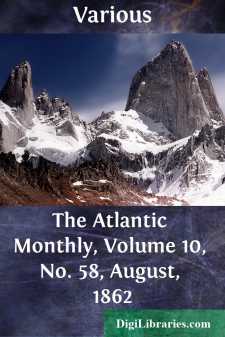Categories
- Antiques & Collectibles 13
- Architecture 36
- Art 48
- Bibles 22
- Biography & Autobiography 815
- Body, Mind & Spirit 144
- Business & Economics 28
- Children's Books 18
- Children's Fiction 14
- Computers 4
- Cooking 94
- Crafts & Hobbies 4
- Drama 346
- Education 58
- Family & Relationships 59
- Fiction 11829
- Games 19
- Gardening 17
- Health & Fitness 34
- History 1378
- House & Home 1
- Humor 147
- Juvenile Fiction 1873
- Juvenile Nonfiction 202
- Language Arts & Disciplines 89
- Law 16
- Literary Collections 686
- Literary Criticism 179
- Mathematics 13
- Medical 41
- Music 40
- Nature 179
- Non-Classifiable 1768
- Performing Arts 7
- Periodicals 1453
- Philosophy 65
- Photography 2
- Poetry 896
- Political Science 203
- Psychology 44
- Reference 154
- Religion 515
- Science 126
- Self-Help 85
- Social Science 82
- Sports & Recreation 34
- Study Aids 3
- Technology & Engineering 59
- Transportation 23
- Travel 463
- True Crime 29
Our website is made possible by displaying online advertisements to our visitors.
Please consider supporting us by disabling your ad blocker.
The Atlantic Monthly, Volume 02, No. 12, October, 1858
by: Various
Categories:
Description:
Excerpt
Half a dozen rivulets leap down the western declivity of the Rocky Mountains, and unite; four thousand miles away the mighty Missouri debouches into the Mexican Gulf as the result of that junction. Did the rivulets propose or plan the river? Not at all; but they knew, each, its private need to find a lower level; the universal law they obeyed accomplished the rest. So is it with the great human streams. Mighty beginnings do not lie in the minds of the beginners. History is a perpetual surprise, ever developing results of which men were the agents without being the expectants. Individual actors, with respect to the master claim of humanity, are, for the most part, not unlike that fleet hound which, enticed by a tempting prospect of meat, outran a locomotive engine all the way from Lowell to Boston, and won a handsome wager for his owner, while intent only on a dinner for himself. Humanity is served out of all proportion to the intention of service. Even the noble souls, never wanting in history, who follow not a bait, but belief, see only in imperfect survey the connections and relations of their deeds. Each is faithfully obeying his own inward vocation, a voice unheard by other soul than his own, and the inability to calculate consequences makes the preeminent grandeur of his position; or he is urged by the high inevitable impulse to publish or verify an idea: the Divine Destiny works in their hearts, and plans over their heads.
Socrates felt a sacred impulse to test his neighbors, what they knew and were: this is such account of his life as he himself can give at its close. His contemporaries generally saw in him an imperturbable and troublesome questioner, fatally sure to come at the secret of every man's character and credence, whom no subterfuge could elude, no compliments flatter, no menaces appall,вÐâsuspected also of some emancipation from the popular superstitions: this is the account of him which they are able to give. At twenty-three centuries' distance we see in him the source of a river of spiritual influence, that yet streams on, more than a Missouri, in the minds of men,вÐâmore than a Missouri, for it not only flows as an open current, but, percolating beneath the surface, and coming up in distinct and distant fountains, it becomes the hidden source of many a constant tide in the faiths and philosophies of nations.
The veil covers the eyes of spectators and agents alike. Columbus returns, freighted with wondrous tidings, to the Spanish shore; the nation rises and claps its hands; the nation kneels to bless its gods at all its shrines, and chants its delight in many a choral Te Deum. What, then, do they think is gained? Why, El Dorado! Have they not gained a whole world of gold and silver mines to buy jewelled cloaks and feathers and frippery with? Have they not gained a cornucopia of savages, to support new brigades at home by their enslavement, and new bishoprics abroad by their salvation? Touching, truly, is the childish eagerness and bonhommie with which those Spaniards in fancy assume, as it were, between thumb and finger, this continent, deemed to be nothing less than gold, and feed with it the leanness of hungry purses; and the effect is not a little enhanced by the extreme pains they are at to say a sufficient grace over the imagined meal. "Oh, wonderful, Pomponius!" shouts the large-minded Peter Martyr. "Upon the surface of that earth are found rude masses of gold, of a weight that one fears to mention!вЦ Spain is spreading her wings," etc. He is of the minority there, who does not suppose this New World a Providential donation to aid him to dinners, dances, and dawdling, or at best to promote his "glory" and pride of social estimation. Even Columbus, more magnanimous than most of his contemporaries, is not so greatly more wise. The noblest use he can conceive for his discovery is to aid in the recovery of the Holy Sepulchre. With the precious metals that should fall to his share, says his biographer, he made haste to vow the raising of a force of five thousand horse and fifty thousand foot for the expulsion of the Saracens from Jerusalem. Nor is this the only instance in which even the noble among men have sought to clutch the grand opening futures, and wreathe the beauty of their promise about the consecrated graves of the past. "Servants of Sepulchres" is a title which even now, not individuals alone, but whole nations, may lawfully claim.
The Old World, we say, seized upon this magnificent new force now thrown into history, and harnessed it unsuspiciously to its own car, as if it could have been designed for no other possible use....












